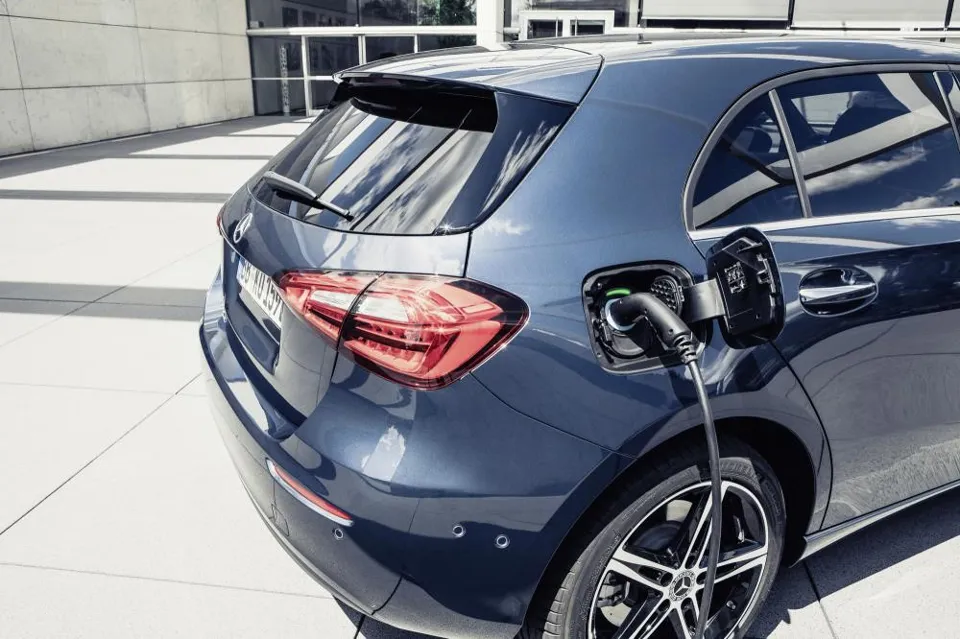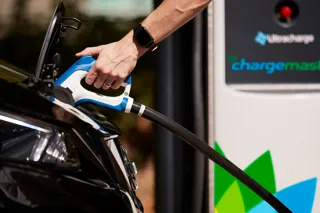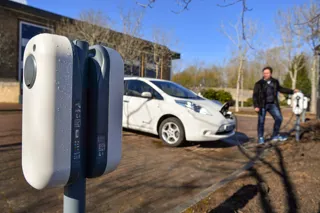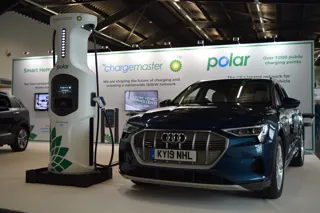Ministers have announced more than half a billion pounds of investment in green technologies, with electric vehicle (EV) charging infrastructure receiving the lion’s share.
The first £70m has been earmarked for 3,000 charge points – more than doubling the number across the UK to 5,000, says the Treasury.
A review is currently underway to explore the provision of charge points across major road networks. Today’s investment complements £1.5 billion support to boost the uptake of EVs and make cleaner vehicles more accessible to everyone, it said.
It has also announced £31.5m for research into pioneering technologies to remove greenhouse gases from the atmosphere, and £22m to research new kinds of air pollutants and minimise their effects on public health.
Exchequer secretary Simon Clarke said: “We are driving ahead with plans to make travel greener while backing British innovation and technology.
“I am delighted to announce this funding today that will more than double the number of rapid charge points for electric vehicles on our roads.
“Britain already boasts one of the biggest networks of charging infrastructure in Europe and soon we will have the fastest thanks to this investment.
“This is the latest in our proud record on climate change –having slashed emissions by over 40% since 1990, whilst simultaneously growing our economy, and setting an ambitious target for net zero emissions by 2050.”
Business, energy and clean growth minister Kwasi Kwarteng added: “The UK has been going further and faster in tackling climate change by becoming the first major economy to legislate for net zero emissions by 2050 and helping us seize the opportunities of a greener future.
“With air pollution thought to kill as many as seven million people a year globally, it’s clear more needs to be done. That’s why we’re backing these initiatives, aimed at making improvements from battling air pollutants to protecting our invaluable sea life.
“These pioneering projects will help us maintain our world-leading position in this field, and to make further strides towards a more sustainable future for our planet.”
The Charging Infrastructure Investment Fund will be managed and invested on a commercial basis by the private sector, and Government will invest up to £200m to be matched by private investors.
The fund, it said, is leveraging private investment to support the rollout of charge points for electric vehicles across the UK.
The initial £70m investment has been provided by Government and Masdar.
Transport Secretary Grant Shapps said: “It’s fantastic there is already a rapid charge point at almost every motorway service station, and now more charging stations than petrol stations. But I want to see thousands more charge points installed across the UK.
“This fund will help drum up further investment in charging infrastructure from the private sector, so charging an electric car becomes as easy as plugging in a smart phone.”
Further investment into green technology is also being announced today.
The Department for Business, Energy and Industrial Strategy has unveiled £142.9m funding in green projects, including driving forward approaches to removing greenhouse gases from the air.
Part of the second wave of the Government’s Strategic Priority Fund, the investment, it says, is evidence of the Government’s steadfast commitment to ensure a healthy, happy planet and population.
The SPF Wave 2 total programme funding figure is £496.8 million. The fund is being delivered by UK Research and Innovation (UKRI).
Five projects are benefiting from the cash injection, include:
- Greenhouse Gas Removal Technologies (£31.52m) – this will support the UK in its net zero ambitions, by driving forward approaches to remove greenhouse gases from the sky on a large scale.
- Clean Air: Addressing the Challenge of Indoor and Outdoor Pollution (£22m) – the next decade will see declining transport pollution but increases in other areas like household products and adhesives. This project will look at tackling emerging air pollutants indoors and outdoors, such as air fresheners and cleaning products, to minimise their effects on public health.
- Cleaner food systems for healthy people and a healthy planet (£47m) –– this will transform UK diets to be healthier and more sustainable through changes in production, manufacturing, retail and consumption. It will deliver coherent evidence to enable concerted action from policy, business and civil society to help the UK meet its targets on obesity and greenhouse gas emissions.
- Reusing and recycling materials in innovative ways (£30m) – this programme will drive forward new research to support opportunities to re-use and recycle materials across sectors such as food, water, textiles and electronics – as well accelerating new, greener manufacturing technologies.
- Sustainable Management of Marine Resources (£12.43m) – This programme will ensure that the UK realises sustainable societal and economic benefits through better management of the UK’s marine resources, including working more closely with government, industry and the public.
























colin - 10/09/2019 14:40
I would like to see more money go towards developing systems to charge EV's, regardless of the type of battery, where it will fully charge in the same time as a current ICE takes to fully refuel. No matter how many charge points are installed, I am not prepared to wait 30 minutes or more to charge an EV as I am not able to do this at home. I would though visit a garage twice a week if required if it only took five minutes maximum as my ICE car does now. Is this something that is achievable by the likes of StoreDot in the near future as it would also prevent thousands of charging points being set up which will eventually become obsolete eyesores?